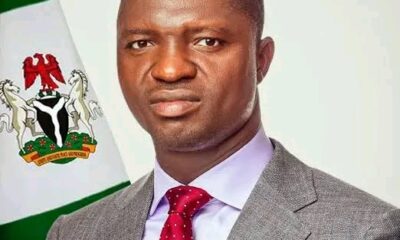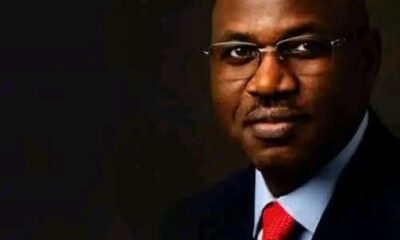World News
Nigeria’s $1 trillion economy depends on €1.05 billion investment in data centers – PIAFo

Nigeria’s ambition to build a $1 trillion economy depends on a €1.05 billion investment in data centers, a 90,000-kilometer fiber optic expansion, and a 10 percent broadband penetration boost that could add 2.5 percent to GDP, according to industry experts at the Policy Implementation Assisted Forum (PIAFo) in Lagos.
Speaking at a panel session on data center risks within the Critical National Information Infrastructure (CNII) framework, Dr. Ayotunde Coker, CEO of Open Access Data Centre (OADC), emphasized the crucial role of digital infrastructure in driving economic growth. He stressed that connectivity, data centers, and power must be aligned to ensure digital resilience.
Coker acknowledged Nigeria’s recent progress in connectivity through increased subsea cable capacity, citing Meta’s new subsea cable project as a major boost to global connectivity. However, he warned of the urgent need to upgrade outdated subsea cables and fast-track projects like the Equiano and 2Africa cables. He also highlighted the importance of scaling up investments in Nigeria’s data center industry to compete globally, noting that South Africa currently houses 50 percent of Africa’s data center infrastructure.
“The future of our digital economy depends on the seamless integration of connectivity, power, and data centers,” Coker stated, calling for stronger collaboration between private and public stakeholders.
Lars Johannisson, CEO of Rack Centre, echoed Coker’s sentiments, commending Nigeria’s digital progress but identifying execution challenges as a major obstacle. He stressed the importance of asset protection policies to attract foreign investment, revealing that every megawatt of data center capacity requires an investment of approximately €12-15 million, with 70 megawatts currently in the pipeline. This translates into a total investment range of €840 million to €1.05 billion.
Johannisson also emphasized the need to decentralize data centers beyond Lagos to ensure broader access and affordability, warning that inefficiencies could drive up costs and make digital services inaccessible to large segments of the population. He urged policymakers to prioritize cost-effective infrastructure investments to meet Nigeria’s broadband penetration target of 80 percent by 2030.
Meanwhile, Abayomi Adebanjo, Director of Legal (Global and Regional Business Affairs) at Equinix, focused on the intersection of digital infrastructure and national security. He highlighted vulnerabilities in Nigeria’s CNII framework and called for stricter security measures at both physical and digital levels. He identified persistent challenges such as fiber cable theft and legal obstacles in prosecuting offenders, which deter investment.
Recognizing the massive power demands of data centers—comparable to large industrial operations like the Dangote refinery—Adebanjo advocated for incentives such as designated special zones for data centers and priority access to electricity. He cited Ireland as an example of how a stable regulatory and power supply environment can attract foreign direct investment, urging Nigerian policymakers to adopt similar strategies.
In his opening remarks, PIAFo convener Omobayo Azeez stressed the need for concerted efforts among stakeholders to protect existing infrastructure and attract new investments to secure Nigeria’s digital future.
The discussions at PIAFo underscored that Nigeria’s economic growth is tied to the expansion of its digital infrastructure, with strong broadband, cybersecurity, and stable power identified as critical factors for achieving the country’s ambitious economic goals.




